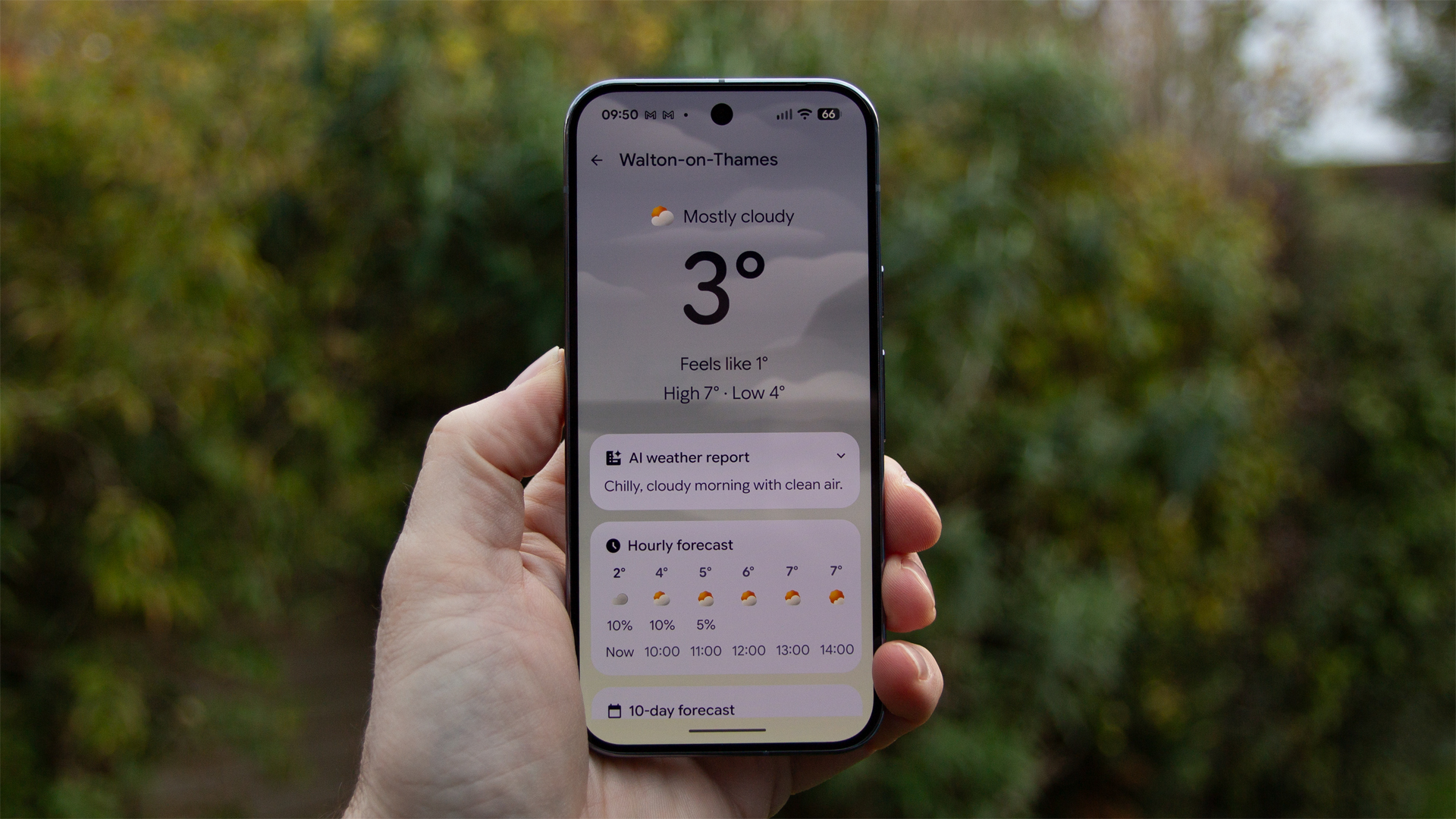Google promises more accurate weather predictions across its apps – even on iPhone
Sunnier times are promised for weather predictions as Google turns up the AI dial


Get all the latest news, reviews, deals and buying guides on gorgeous tech, home and active products from the T3 experts
You are now subscribed
Your newsletter sign-up was successful
Quick Summary
Google has announced WeatherNext2, a faster and more accurate AI model for producing weather forecasts.
The new model will power weather in Google's existing products, while also being available to other researchers and scientists.
There are some areas where AI is unwelcome, but also many others where it makes perfect sense – and the latter is true in this case. Google has just announced an AI enhancement to weather forecasting.
Announcing WeatherNext2, it promises to deliver faster and more accurate weather predictions.
On a surface level, the boost that WeatherNext2 brings will power consumer-facing products that Google offers that include the weather, so Search, Gemini and Pixel Weather have all been upgraded for better weather predictions. Google Maps is also in line to be updated in the coming weeks.
That means more accurate weather information will be available on Pixel and Android devices – as well as iPhone.
But this isn't just about that surface level convenience. It's also available through Earth Engine and BigQuery, while Google Cloud's Vertex AI will allow customer interrogation of the model too. That means it's available to scientists, researchers and developers to take that data into their own forecasts and models.
Google says that it can generate forecasts eight times faster (although it's not clarified what it's faster than), but does say that it generates hundreds of predictions from the weather conditions, with each prediction taking a minute – whereas it would take hours on a supercomputer using "physics-based models".
This is where AI is having an impact, with predictions down to a single hour. Google says that it surpasses the previous weather model in 99.9% of variables – temperature, wind, humidity – and leading to more useful forecasts.
Get all the latest news, reviews, deals and buying guides on gorgeous tech, home and active products from the T3 experts
A traditional physics-based model will calculate what happens using equations and through that route will attempt to figure out what the weather will do. AI on the other hand learns from weather patterns and events, then predicts from that learnt behaviour what the likely result will be.
The enhancements enable the model to give accurate predictions for a localised region, so should be able to give the weather just for your town, while also feeding those marginals into the bigger picture of the forecast for the whole region.
Google says that now that WeatherNext2 is out of the lab as a working model, it's available for people to benefit from it right away.

Chris has been writing about consumer tech for over 15 years. Formerly the Editor-in-Chief of Pocket-lint, he's covered just about every product launched, witnessed the birth of Android, the evolution of 5G, and the drive towards electric cars. You name it and Chris has written about it, driven it or reviewed it. Now working as a freelance technology expert, Chris' experience sees him covering all aspects of smartphones, smart homes and anything else connected. Chris has been published in titles as diverse as Computer Active and Autocar, and regularly appears on BBC News, BBC Radio, Sky, Monocle and Times Radio. He was once even on The Apprentice... but we don't talk about that.
You must confirm your public display name before commenting
Please logout and then login again, you will then be prompted to enter your display name.
